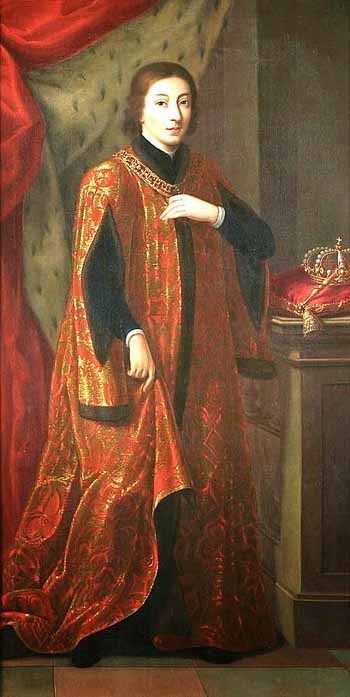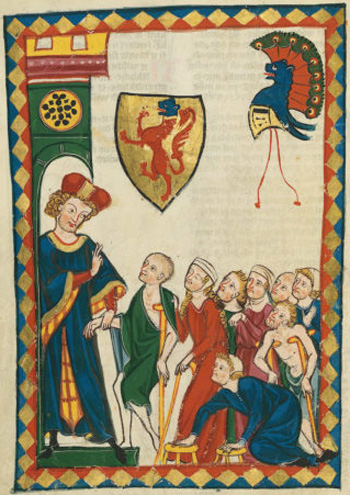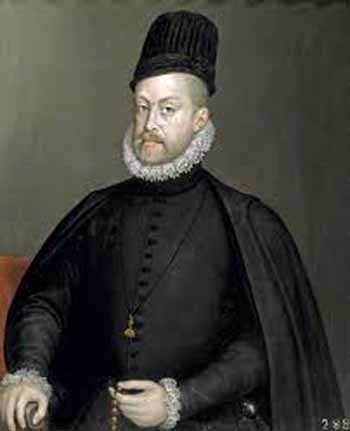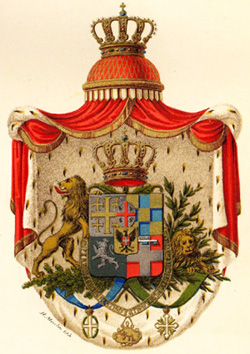Saints of the Day
 |
 |
 |
 |
 |
 |
 |
Bl. Amadeus, Duke of Savoy - March 30
Biographical selection:
Born in Thonon-les-Bains in 1435 Amadeus IX, Duke of Savoy, succeeded his father Louis and married Yolanda of Valois, the sister of Louis XI, King of France, with whom he had 10 children. During his government on the throne of Piedmont of Savoy he often suffered epileptic seizures and, for this reason, had to share his power with the Duchess his wife.
 Although he lived in a high standing in accordance with his position, he never exploited his subjects or made them enter useless wars. He administered severe treatment to libertines, money changers and blasphemers.
Although he lived in a high standing in accordance with his position, he never exploited his subjects or made them enter useless wars. He administered severe treatment to libertines, money changers and blasphemers.
Following his example, Francis Sforza, Duke of Milan imposed fees on the courtesans who were caught cursing or blaspheming; with that money he built a chapel that he decorated with magnificence.
Observing the great goodness of Duke Amadeus in his treatment of the poor, the same Duke of Milan commented: "Going through your States we have the impression of living in the antipodes: Everywhere else in the world it is generally better to be rich than poor, but in your States it is the poor who are honored."
The Duke always made prayer and penance. To those who tried to dissuade him from fasting so rigorously, he replied that nothing was better for his health.
In the last year of his life his suffering increased greatly, which made his spouse and family become very sad to see him so debilitated at the end of the seizures. "Why are so afflicted?" he asked them, "The humiliations open the path for the Kingdom of God."
He died in La Vercelli, Italy, on Easter Monday in 1472 at age 37.
Comments of Dr. Plinio:
This figure of a Duke enters that line of Sovereigns who existed in the olden times, before the explosion of the Revolution made such Kings impossible. In the time where the revolutionary spirit had not penetrated the masses, the civil authority could show a goodness, an affability and an openness that afterwards it was no longer possible to show.

 For example, the proud, serene and severe stance of Phillip II of Spain was an attitude that was necessary to face the Revolution, while sovereigns like Bl. Amadeus of Savoy, who lived before the Revolution exploded, could show a paternalness, an openness and a mercy that fully expressed a Christian Monarchy before the epoch of the Revolution.
For example, the proud, serene and severe stance of Phillip II of Spain was an attitude that was necessary to face the Revolution, while sovereigns like Bl. Amadeus of Savoy, who lived before the Revolution exploded, could show a paternalness, an openness and a mercy that fully expressed a Christian Monarchy before the epoch of the Revolution.
You can see this latter type of Sovereign in Blessed Amadeus: the father of the poor and the father of the people. He himself had greatly suffered and had a poor health. He was an epileptic whose health became so bad that he had to divide the exercise of his office of governing his Dukedom with his wife.
Nonetheless, he had an energetic government that was manifested in the combat to the usurers, money lenders and middle men who made the life of the poor insupportable. He was a true father and protector of the people, in an ambience in which these behaviors did not raise the revolutionary germs. On the contrary, they increased the love of the people for the Sovereign, the head of the State and reinforced an air of family that the Sovereign could give to his States.
Then, the unsuspected commentary of the Duke of Milan saying that in the States of the Duke of Savoy the situation of the poor was better than that of the rich. It was not to put down the rich, to finish with the nobility, to end with all social inequalities, but to create in society an ambience in which the poor would not suffer and the number of poor would diminish as much as possible. And that the meekness and goodness of Our Lord Jesus Christ would irradiate for the entire social body.
On the other hand, it is stressed that he was Duke who lived in accordance with his dignity. He in no way degraded himself demagogically to show that he care for the poor. He was a man with a perfect balance in these things.
Here we have the profile of a Prince that is really extraordinary and should raise our profound admiration and devotion.



The Saint of the Day features highlights from the lives of saints based on comments made by the late Prof. Plinio Corrêa de Oliveira. Following the example of St. John Bosco who used to make similar talks for the boys of his College, each evening it was Prof. Plinio’s custom to make a short commentary on the lives of the next day’s saint in a meeting for youth in order to encourage them in the practice of virtue and love for the Catholic Church. TIA thought that its readers could profit from these valuable commentaries.
The texts of both the biographical data and the comments come from personal notes taken by Atila S. Guimarães from 1964 to 1995. Given the fact that the source is a personal notebook, it is possible that at times the biographic notes transcribed here will not rigorously follow the original text read by Prof. Plinio. The commentaries have also been adapted and translated for TIA’s site.
Born in Thonon-les-Bains in 1435 Amadeus IX, Duke of Savoy, succeeded his father Louis and married Yolanda of Valois, the sister of Louis XI, King of France, with whom he had 10 children. During his government on the throne of Piedmont of Savoy he often suffered epileptic seizures and, for this reason, had to share his power with the Duchess his wife.

Bl. Amadeus, Duke of Savoy, known for his amiability & goodness to his people
Following his example, Francis Sforza, Duke of Milan imposed fees on the courtesans who were caught cursing or blaspheming; with that money he built a chapel that he decorated with magnificence.
Observing the great goodness of Duke Amadeus in his treatment of the poor, the same Duke of Milan commented: "Going through your States we have the impression of living in the antipodes: Everywhere else in the world it is generally better to be rich than poor, but in your States it is the poor who are honored."
The Duke always made prayer and penance. To those who tried to dissuade him from fasting so rigorously, he replied that nothing was better for his health.
In the last year of his life his suffering increased greatly, which made his spouse and family become very sad to see him so debilitated at the end of the seizures. "Why are so afflicted?" he asked them, "The humiliations open the path for the Kingdom of God."
He died in La Vercelli, Italy, on Easter Monday in 1472 at age 37.
Comments of Dr. Plinio:
This figure of a Duke enters that line of Sovereigns who existed in the olden times, before the explosion of the Revolution made such Kings impossible. In the time where the revolutionary spirit had not penetrated the masses, the civil authority could show a goodness, an affability and an openness that afterwards it was no longer possible to show.

A medieval noble caring for the poor, a model ruler different from King Philip II of Spain, below

You can see this latter type of Sovereign in Blessed Amadeus: the father of the poor and the father of the people. He himself had greatly suffered and had a poor health. He was an epileptic whose health became so bad that he had to divide the exercise of his office of governing his Dukedom with his wife.
Nonetheless, he had an energetic government that was manifested in the combat to the usurers, money lenders and middle men who made the life of the poor insupportable. He was a true father and protector of the people, in an ambience in which these behaviors did not raise the revolutionary germs. On the contrary, they increased the love of the people for the Sovereign, the head of the State and reinforced an air of family that the Sovereign could give to his States.
Then, the unsuspected commentary of the Duke of Milan saying that in the States of the Duke of Savoy the situation of the poor was better than that of the rich. It was not to put down the rich, to finish with the nobility, to end with all social inequalities, but to create in society an ambience in which the poor would not suffer and the number of poor would diminish as much as possible. And that the meekness and goodness of Our Lord Jesus Christ would irradiate for the entire social body.
On the other hand, it is stressed that he was Duke who lived in accordance with his dignity. He in no way degraded himself demagogically to show that he care for the poor. He was a man with a perfect balance in these things.
Here we have the profile of a Prince that is really extraordinary and should raise our profound admiration and devotion.

Arms of the House of Savoy

 | |
|
|
The texts of both the biographical data and the comments come from personal notes taken by Atila S. Guimarães from 1964 to 1995. Given the fact that the source is a personal notebook, it is possible that at times the biographic notes transcribed here will not rigorously follow the original text read by Prof. Plinio. The commentaries have also been adapted and translated for TIA’s site.


